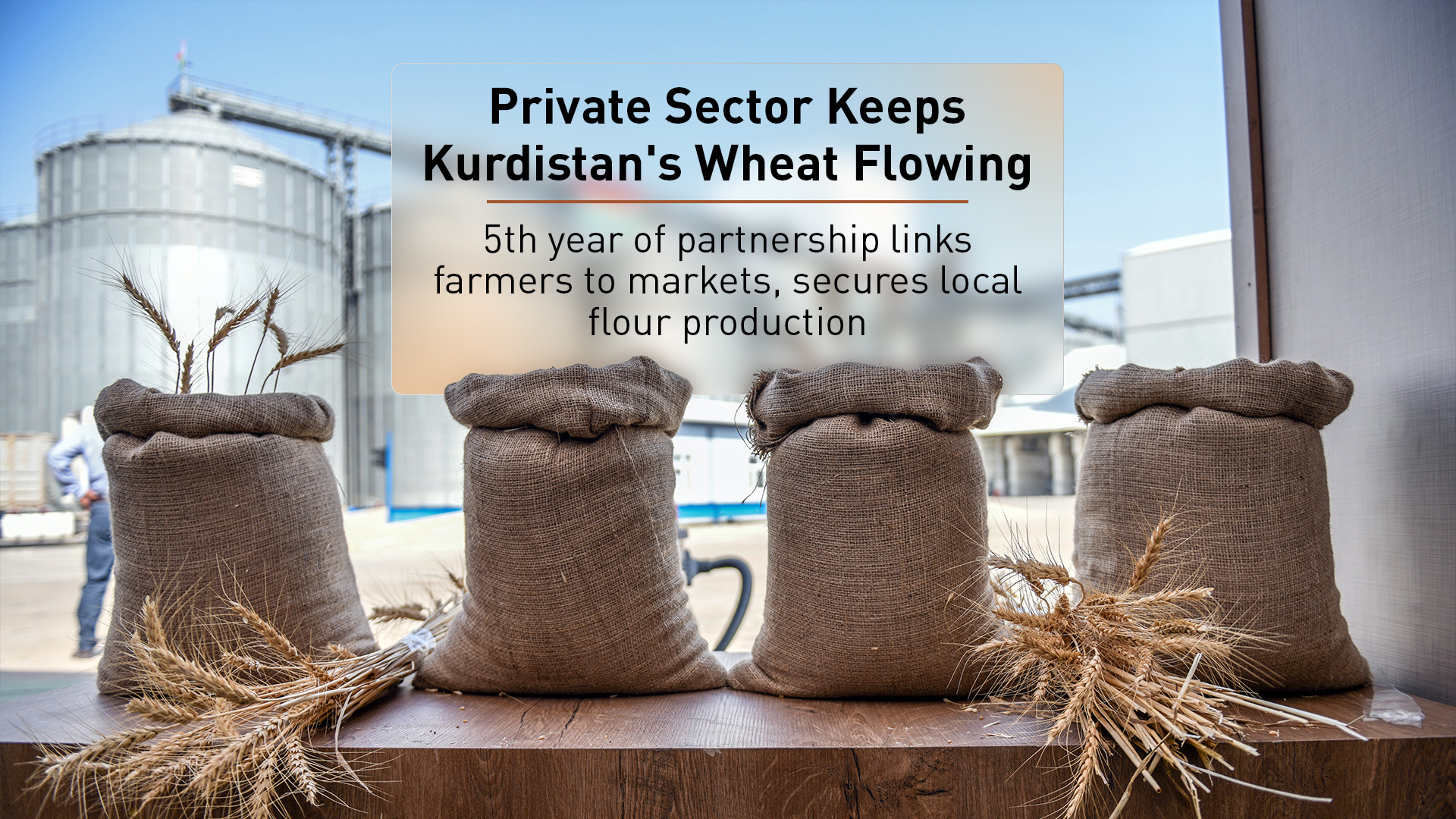Harvest Success: Private Sector Partnership Empowers Kurdistan's Farmers
For the 5th year, a successful private sector partnership is empowering Kurdistan's farmers by purchasing their wheat harvest, ensuring their efforts contribute to the local economy and support the agricultural sector.

ERBIL (Kurdistan24) – In a powerful display of collaboration supporting the Kurdistan Region's agricultural backbone, a successful partnership between private companies and local farmers is continuing for its fifth consecutive year, ensuring that bountiful wheat harvests translate into economic prosperity and that the dedicated efforts of farmers are rewarded.
This vital wheat marketing project, which farmers state supports both them and the agricultural sector, is accepting high-quality wheat until August 15, fostering a thriving market and strengthening the local food supply chain.
Sarmad Rasheed, the General Director of Das Food Industries, spoke with Kurdistan24 on Sunday, expressing confidence in the program's capacity and standards. He confirmed that a quality agreement is in place and that the company is prepared to receive hundreds of tons of wheat. The goal, he said, is to secure grain that "is suitable for making the flour that we have made available in the markets," linking local farming directly to consumer products.
Highlighting the well-organized nature of the initiative, Rasheed noted the clear timeline for this year's harvest season. "The timeframe is good; from July 15 to August 15 is a good period," he stated, while confirming that the program will adhere to its planned schedule.
Farmers on the ground shared their positive experiences with Kurdistan24, illustrating the significant impact of the private sector's role.
"The Regional Government took 10 tons of wheat from us, but I have brought 30 tons of wheat to this company," said farmer Aziz Abdulkarim, showcasing the substantial volume that private companies are absorbing, providing a crucial outlet for their crops.
Another farmer, Star Jabbar, explained how the program allows him to market his entire harvest. "Half of my wheat is left, and now I have brought about 18 tons to give to a private company," he said. While noting the market reality of fluctuating prices, he shared the current rates: "The price is dropping, at 430 or 470 thousand dinars, and first-grade is 480 thousand dinars."
This initiative ensures that "the farmers' efforts do not go to waste." The program’s reach extends beyond the core of the Kurdistan Region, also accepting wheat from farmers in the plains of Qaraj and Kendinawa, uniting agricultural communities and bolstering the entire sector.